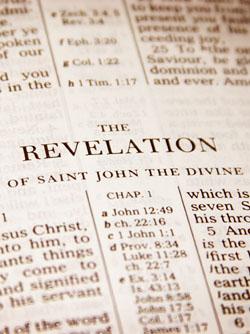A Universe Tailored Just for You
On June 28, 2018, NewScientist magazine published an online article titled “A fine-tuned universe may be controversial but can’t be ignored.” What are they talking about?
The more that cosmologists and physicists have plumbed the depths of the laws governing our universe, the more they have been unsettled. They have found that the laws of nature seem to have been very finely tuned to make life possible. If just one of many constants and principles governing the cosmos were different by even the slightest amount, then life as we know it—in fact, life in the universe at all—could not exist!
When we examine the universe, it does not appear random and unplanned. Quite the contrary, it appears to have been designed to allow for life like ours to exist! One of the ways that design shows itself is through the numerous factors that must have been finely and precisely tuned to tailor a universe just for us.
The number of such cosmic “adjustments” that make our lives possible is far too large to exhaustively list them in this brief article. But let’s take the time to survey only a few of them and then consider what such fine-tuning implies.
A Universe Precisely “Dialed In” to Allow Life
For example, physicists have discovered that the ratios of the particle masses that make up the atom cannot vary by even the tiniest amount. If they did, then the lives of stars would be too short or, in the worst case, even atoms themselves could not exist. As Stephen Hawking once wrote in his book, A Brief History of Time, “The remarkable fact is that the values of these numbers seem to have been very finely adjusted to make possible the development of life” (p. 125, emphasis ours).
Consider, as well, the “cosmological constant”—an obscure but vital number related to the “energy density” of the universe. Scientists were surprised to find that it was vastly lower than theories predicted, yet if this cosmic constant were not “finely tuned” to within 120 decimal places, then, according to Nobel Prize-winning physicist Steven Weinberg, the universe would have long ago collapsed in on itself or else expanded so fast that no stars or galaxies could exist (“Life in the Universe,” Scientific American, 1994).
The list of such precisely “dialed in” numbers that make life possible is long! If the strength of gravity were larger, stars would burn too hot, too quickly, and too unevenly—yet if it were lower, stars would be too cool and would fail to begin the nuclear fusion essential for life. If the “ground state” energy level of the helium atom were slightly higher or lower, there would be insufficient carbon and oxygen in the universe for life. If the electromagnetic force did not have exactly the strength it does, then the chemical bonds that make life possible could not occur. Example after example exists in the sciences of such “coincidences”—where the numbers turn out “just right.”
Had these factors that constrain the forces and laws of the universe differed by only the tiniest of fractions, we simply could not exist. And yet, try as they might, physicists and cosmologists have yet to discover a convincing reason for why these conditions are so precisely fixed the way they are. To them, it remains a mystery for which they continue to seek a satisfying explanation.
Could it be random? Is it possible that we simply “got lucky” and just happen to have been given such a “Goldilocks universe”? Geoff Brumfiel, writing in the prestigious science magazine Nature, summarized what it means to live in a life-permitting universe such as our own: “If you believe the equations of the world’s leading cosmologists, the probability that the Universe would turn out this way by chance are infinitesimal—one in a very large number” (January 5, 2006).
An Infamous Atheist Changes His Mind
Antony Flew had been one of the most famous atheists in the world, writing many books and participating in public lectures and debates, arguing that God did not exist—even that the very idea of “God” was illogical.
Then, in the early-2000s, he changed his mind, to the shock and surprise of many. He summarized how he had arrived at his new conclusion in his 2008 book, There Is a God: How the World’s Most Notorious Atheist Changed His Mind. In that book, written with co-author Roy Varghese, he details why he had to face the facts and admit the obvious: There truly must be a God behind the world we see around us.
In his chapter “Did the Universe Know We Were Coming?,” Flew discusses the sort of evidence we have described here, and summarizes the clear conclusion with a simple analogy.
Imagine, he suggests, that you stop at a hotel during a vacation trip, get a key, and head to your room. But as you enter the room and put your bags down, you begin to notice a number of remarkable coincidences. The music playing quietly in the room just happens to be your favorite music. You smell your favorite fragrance wafting through the air, and the room is stocked with your favorite beverages and your favorite snacks. The book on the desk just happens to be one by your favorite author, and the bathroom happens to be filled with your favorite products. The television is off, but when you turn it on, it is already set to your favorite channel.
Such a growing collection of “coincidences” would lead you to conclude that somehow the hotel management knew in advance that you were coming. And, as Flew argues, the far more numerous life-supporting “coincidences” we see in the world and cosmos around us should bring us to the same conclusion: Someone has arranged this universe especially for us.
Only a “Divine Mind”
Some have tried to dismiss the fine-tuned universe idea in a variety of ways, such as a hypothesized “multiverse” of multiple universes, in which ours just happens to be one that “works.” (Our November-December 2014 article “Do We Live in a Multiverse?” explores this issue.) Others have suggested that we shouldn’t be surprised that the universe suits us, no matter how utterly improbable it might be. After all, they argue, this arrangement of the universe may have been mind-bogglingly improbable, but if it had not turned out this way, we wouldn’t be here to wonder about how improbable it is!
In evaluating such responses, the one-time atheist notes that when such “answers” are examined closely, they simply fail to address the central question: No excuse or imagined scenario changes the fact that these laws of nature must be explained, and in Flew’s own words, “the only viable explanation here is the divine Mind.”
None of this should surprise students of the Bible. We are told by the prophet Isaiah that the Eternal One “who created the heavens” is also the One “who did not create [the earth] in vain, who formed it to be inhabited” (Isaiah 45:18). His intention from the beginning was to give you a universe in which you could live and come to know Him—to create a home for the works of His hands.
In reality, the universe is made for you in more ways than one. In creating the cosmos around us, the Creator has done far more than craft a finely tuned environment that affords us an opportunity to live out our brief, physical lives. For those who spend the time they are given seeking His will and His way, the universe is more than a temporary home. It is an inheritance.






